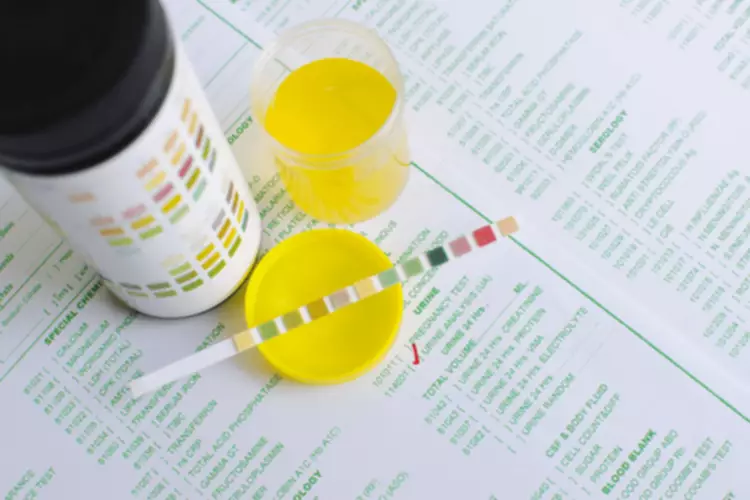
CBD has been shown to be a safe compound in both animals and humans, which is of critical importance from a therapeutic point of view. As previously mentioned, CBD exercises its effects via several neural mechanisms relevant to addictive disorders. Its action on the ECBS as a weak inverse agonist on CB1 receptors has been suggested to play a role in substance-use disorder, but other mechanisms are also involved. Ren et al studied the postmortem brain of rats and found that CBD normalized the heroin-induced changes in CB1 receptor mRNA expression and AMPA GluR1 in the nucleus accumbens, even after 2 weeks of treatment. More studies are needed to clarify the exact mechanisms through which CBD influences addictive behaviors, in addition to the endocannabinoid, glutamatergic, and serotoninergic systems. These mechanisms may well be different for each substance of abuse and each addictive phase.
CBD vs. THC: Potential Benefits
Because of this, CBD does not have psychoactive effects—in other words, it won’t cause you to get high. To understand these products’ effects and potential risks, it is important to first understand the differences between CBD and THC. It’s an excellent strain for those seeking all the medicinal benefits and pain relief of cannabis without the high. This medicinal cannabis strain is anti-anxiety, and anti-inflammatory, and significantly helps those who experience pain regularly.
CBD as a Potential Treatment for Addiction
Some common side effects of CBD may include dry mouth, low blood pressure, lightheadedness, and drowsiness. It is important to consult with a healthcare professional before using CBD, especially if you are pregnant or breastfeeding, have liver disease, or are taking medication that could interact with CBD. Some CBD products may contain THC, the psychoactive compound is cannabidiol addictive found in marijuana. It’s essential to be aware of this possibility when purchasing CBD oil or other products. Always look for third-party lab testing results to ensure the product contains only trace amounts of THC, especially if you want to avoid any psychoactive effects. Hemp is different from marijuana even though they come from the same kind of plant – cannabis.
CBD Could Assist People with Addiction, Studies Say
The main objective of this review is to systematically examine the existing preclinical and clinical evidence on the effects of CBD on addictive behaviors. Cannabinoids are chemical compounds produced naturally in our bodies and in some plants. In humans they’re called endocannabinoids, and in plants they’re called phytocannabinoids.
- While some early research suggests that CBD may have the potential for alleviating the symptoms of some conditions, a 2019 review of the existing research concluded that more research is needed to demonstrate these benefits.
- Initial evidence from animal and human studies (i.e. a controlled study in the New England Journal of Medicine and other reported individual cases) shows that its use could have some therapeutic value for seizures due to epilepsy and related conditions.
- Following oral 30, 100, and 300 mg/kg CBD for 90 days in rhesus monkeys, significant 57% decreases in testicular weights were observed after 200 mg/kg CBD that continued after the end of treatment [61].
- Strengths of the present study include its pre-registered protocol, comprehensive systematic search strategy, and its timeliness as the first meta-analysis of the safety and tolerability of CBD across all indications.
- Studies defining CBD’s beneficial effects were included to provide balance in estimating risk/benefit.
- Cannabis contains over 400 chemical compounds such as cannabinoids, terpenoids, flavinoids, and omega fatty acids.
Interestingly, a single acute administration of a low 3 mg/kg CBD dose in mice had an anxiolytic effect, while repeated administration of a 3 or 10 mg/kg dose exerted antidepressant effects by cell proliferation and neurogenesis [36]. Conversely, CBD anxiolytic effects were not observed at higher 10 and 30 mg/kg CBD doses or after 15 days of 30 mg/kg/day dosing. The authors suggest that there is an inverted U-shaped dose-response curve for CBD’s effects on anxiety. However, to enable the reader to independently evaluate CBD’s AEs and toxicity, we briefly highlight some current research supporting CBD therapeutics. Cannabinoid receptors were cloned by Matsuda et al. in 1992 [4] and Munro et al. in 1993 [3], respectively.
And OTC CBD products are not regulated or standardized like prescription medications such as Epidiolex. Epidiolex is a prescription drug, not an over-the-counter (OTC) product. CBD can assist both with physiological addiction and aid people in forming the right habits around different activities and substances by reducing the response to the rewarding stimuli. Those with addiction experience several symptoms, from impaired cognition to compromised body functions, along with behaviors that negatively impact their social lives and relationships.

CBD Products That May Contain THC
This descendant of Critical Kush will be sure to relieve tension, ease muscles, and provide a sense of satisfaction. It can offset the effects of human experimental anxiety from caffeine, nicotine, and other legal substances. This study showed that CBD, compared to placebo, helped decrease the cue-induced craving and anxiety of individuals with heroin use disorder.


CBD can also interact with other medications you’re taking, such as blood thinners. CBD doesn’t contain tetrahydrocannabinol (THC), the psychoactive ingredient found in marijuana that produces a high. The usual CBD formulation is oil, but CBD is also sold as an extract, a vaporized liquid and an oil-based capsule. Food, drinks and beauty products are among the many CBD-infused products available online. No, according to the World Health Organization, CBD doesn’t have addictive potential and it’s not likely to cause substance abuse or addiction. People struggling with addiction may experience intense cravings for the substance and continue using it even when they want to stop.

Where do you buy CBD?
However, some people may hesitate to use such products for fear that CBD might have the same potential for addiction as cannabis. Because THC has psychoactive effects, it may produce more immediate pain relief. However, CBD can help reduce inflammation, which is useful for long-term effectiveness. Some evidence suggests that taking both CBD and THC may provide the greatest pain relief. In one study, people who took a combination of CBD and THC experienced greater pain relief than those who took THC alone. Cannabis contains over 400 chemical compounds such as cannabinoids, terpenoids, flavinoids, and omega fatty acids.

Common Side Effects of CBD
Do not drive or use heavy machinery when taking CBD oil—especially when you first start using it or switch to a new brand. CBD may produce favorable outcomes for people attempting to lower their blood pressure. Multiple recent studies have shown CBD’s effectiveness in reducing blood pressure in those with hypertension.

